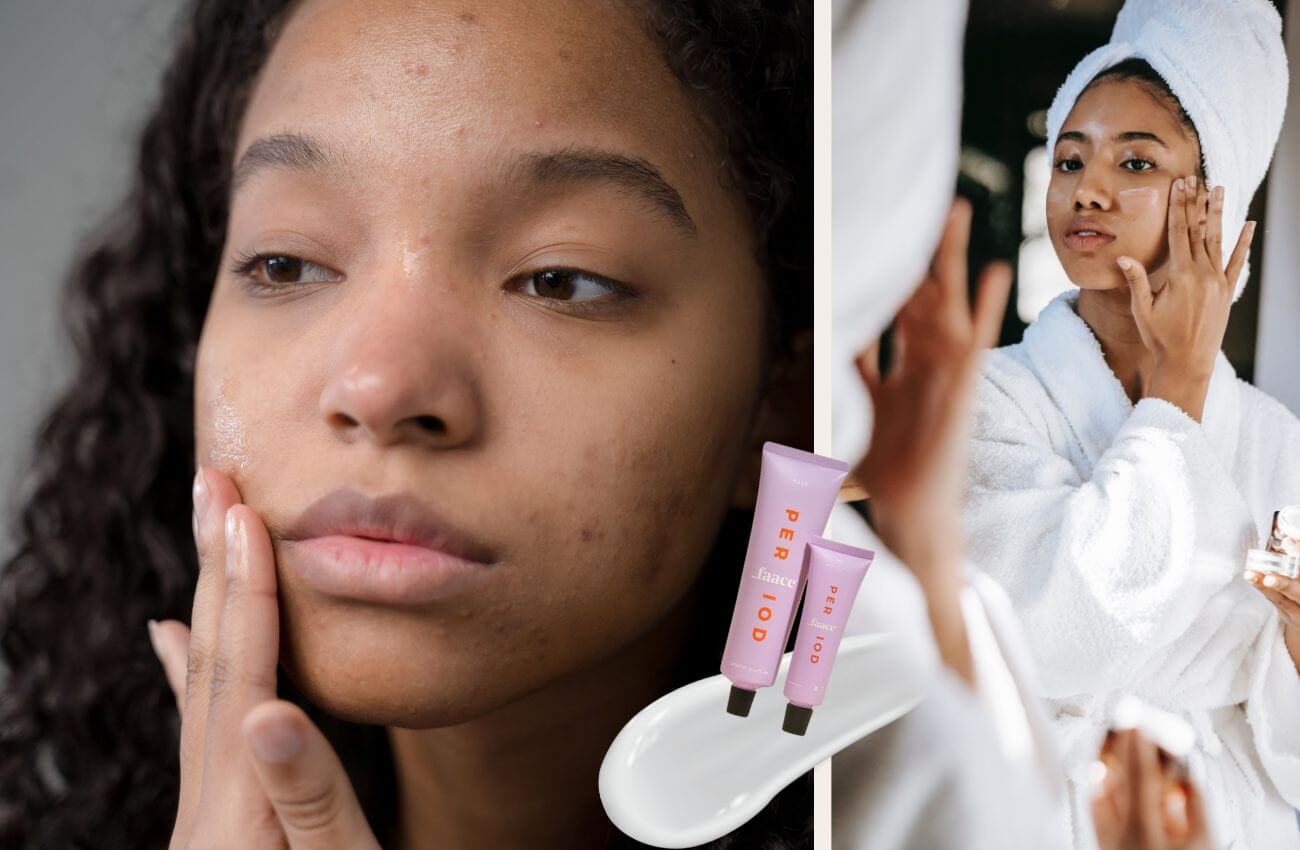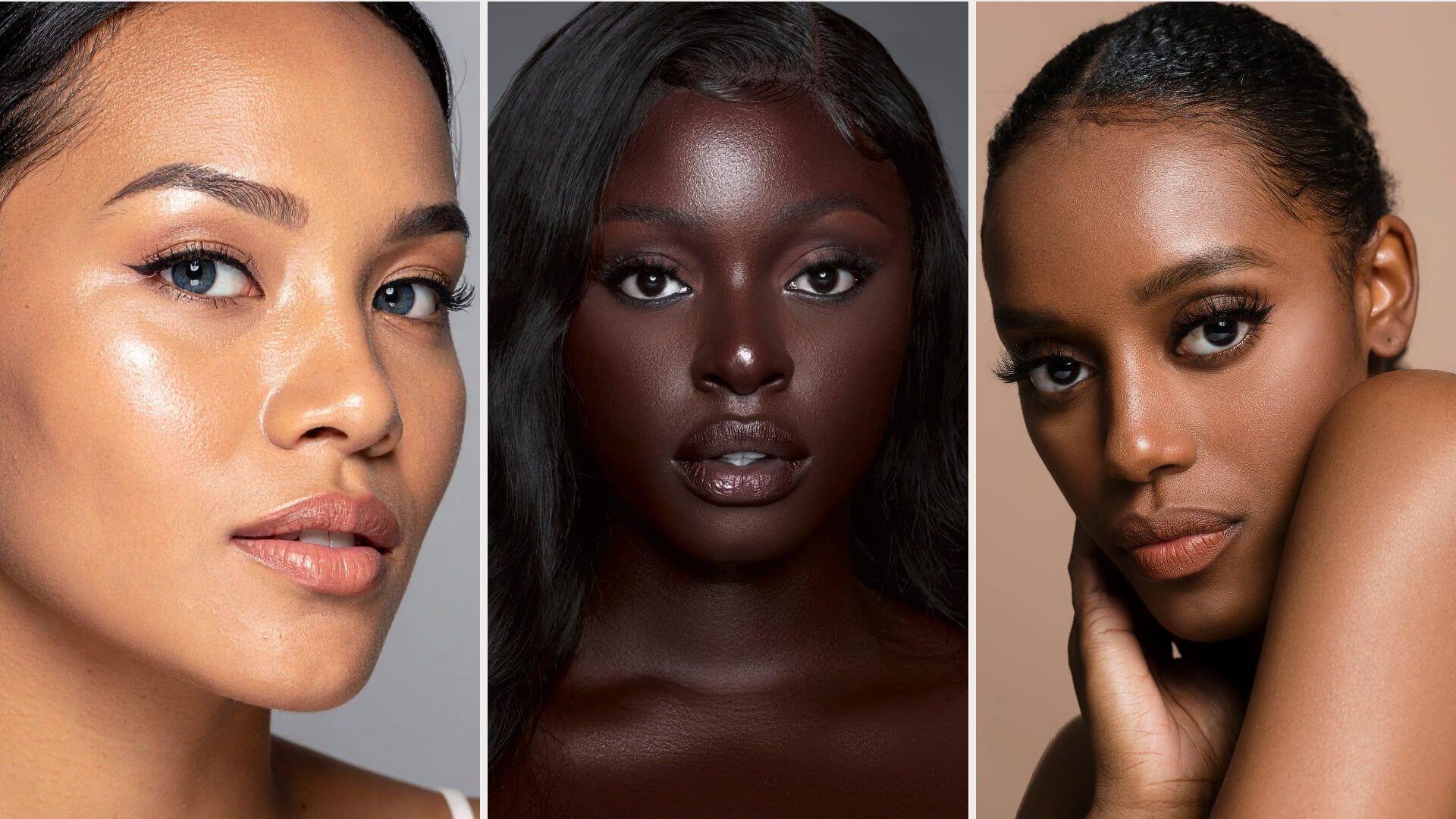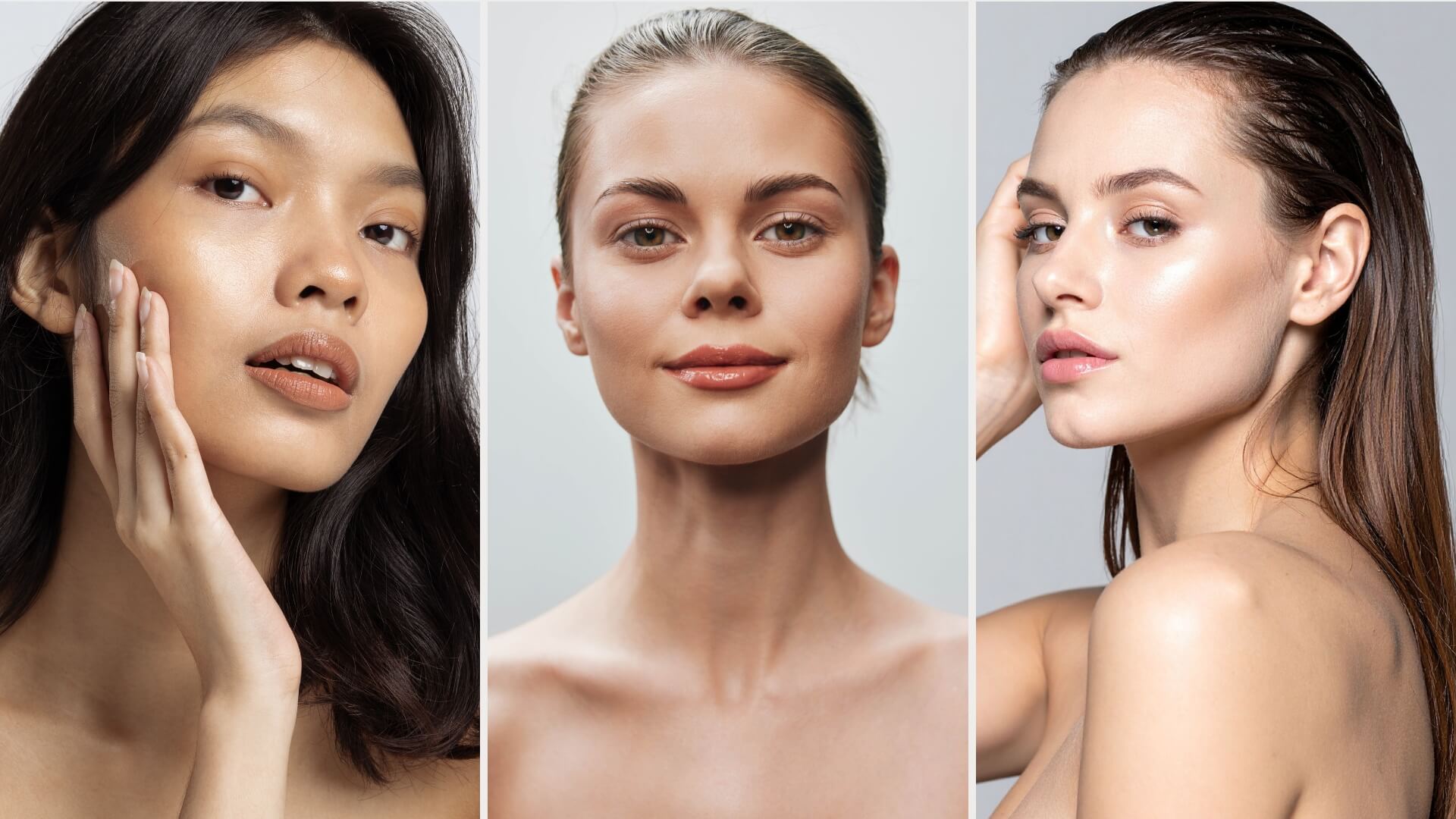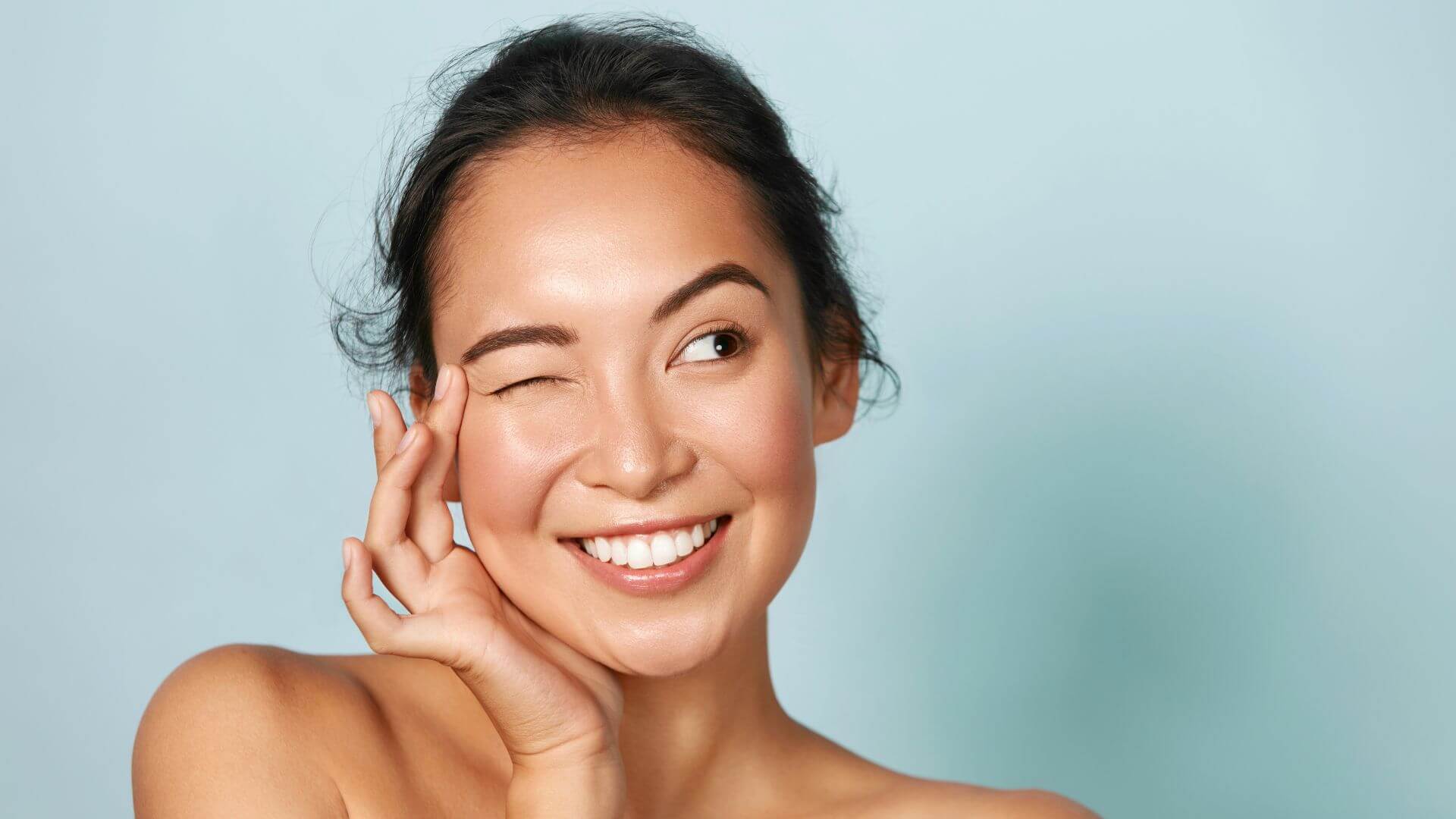Hormonal skincare addresses the intricate relationship between hormones and skin health. Hormones, those chemical messengers in our bodies, have a profound impact on our skin, influencing everything from oil production to elasticity and inflammation. This guide aims to demystify hormonal skincare for women, emphasising its significance in maintaining a healthy and radiant complexion.
What is Hormonal Skincare?
Hormonal skincare is a revolutionary approach to skincare that takes into account the impact of hormones on your skin’s health and appearance. It recognises that hormonal fluctuations, which occur naturally throughout your life, can significantly influence your skin’s condition.
Understanding your hormones and their effects on your skin can help you make informed choices about your skincare routine. With the right knowledge and products, you can optimise your skincare regimen to achieve glowing, youthful skin at any age.
The Science Behind Hormonal Skincare
There are several hormones that play a crucial role in skin health, including estrogen, testosterone, and cortisol. In order to resolve skin problems effectively, it is crucial to understand the hormonal interplay between these hormones. A hormonal imbalance can manifest itself as acne, excessive dryness, or premature ageing.
- Oil Production: Hormonal fluctuations can lead to increased oil production, contributing to acne and skin congestion.
- Collagen and Elasticity: Hormones influence collagen and elastin production, affecting skin firmness and elasticity.
- Hydration: Hormonal changes may result in dry or dehydrated skin.
- Inflammation: Hormones can trigger skin inflammation, leading to redness and sensitivity.
Understanding these connections allows us to tailor skincare routines to address specific concerns.
Why we need hormonal skincare
Hormones play a huge role in changing skin conditions. Fiona Toomey, founder of NAYDAYA, the wellness brand designed to work with – not against – your hormones, explains: “Our hormones dictate everything; including how our skin looks and feels.
“We’ve understood the link between hormones and acne for some time, but finally we have better education on the relationship between hormones and dryness, itching, collagen loss, vaginal atrophy and more.”

Hormonal Skin Issues: Identifying Them
Hormonal imbalance often manifests itself as skin problems, like hormonal acne. For example, an increase in androgens (male hormones) can lead to excess sebum production, which contributes to acne.
Hormonal skincare is a simplified approach, tailored to your skin’s changing and sometimes contradictory needs. Founder of straight-talking skincare range, Faace, Jasmine Wicks-Stephens comments: “I could time my cycle just by looking at my skin and waiting for the disruption to unfold.
“Times when your hormones are shifting, such as during your cycle, new motherhood and the menopause can be turbulent and often we need to reach for straight-forward solutions that will be tailored to our skin’s needs.
“When your hormones are playing havoc with your skin, you might find that a lot of things are happening at the same time that are contradictory, for example, dry skin patches and spots. So hormonal skin solutions are a simplified option with lots of different ingredients to target all those different concerns and can help tackle it that way.”
Hormonal Skincare Strategies
For better skin health, balancing hormones involves a holistic approach that includes a healthy diet, managing stress, and getting enough sleep. Certain ingredients in skincare products, such as hyaluronic acid and salicylic acid, are particularly effective at hydrating the skin and treating acne.
Hormonal Skincare for Different Life Stages
Women face different hormonal challenges at different life stages. They may suffer from acne during puberty, while adults may experience skin changes caused by stress or hormonal fluctuations. Menopause, on the other hand, can cause dryness and elasticity due to a decrease in estrogen levels. These life stages require tailor-made skincare.
At different life stages, hormones have a significant impact on our skin. Siobhan McCarthy, co-founder of Living M, the skincare range for menopause and peri-menopause says: “Hormonal shifts in menopause have been found to have a greater impact on skin than that of chronological ageing.
“Fluctuating hormones causes skin cell turnover to rapidly decline and can lead to a range of concerns such as dryness, loss of radiance, irritation, increased sensitivity, breakouts, and a weakened skin barrier.”
Addressing Hormonal Acne
Treatments for hormonal acne can include either topical retinoids or hormonal therapies, depending on severity. To combat dryness and sensitivity, skincare routines should focus on gentle, hydrating ingredients.
Women are more in tune with their bodies and hormones than ever before. NAYDAYA founder Fiona Toomey adds: “There’s a growing awareness about how critical our hormones are. For women who want to bio-hack, tailor their routines, or simply feel their most beautiful selves, understanding their hormonal health is imperative.
“Skincare that works with your hormones, and not against them is going to be a mainstream requirement for skincare savvy consumers going forwards.”
The anti-ageing movement is fuelling the interest in hormonal skincare. Living M co-founder Siobhan McCarthy explains: “Many of us find all the anti-ageing messaging really depressing. We don’t want to anti-age, we just want great skincare to deal with the very specific skin changes we were experiencing for the first time.
“As we are more in tune with our bodies than ever before, we understand that it isn’t our age that is the issue, it is our hormones. We talk about hormonal skin changes in puberty and pregnancy but in midlife we are told to ‘anti-age’ – that doesn’t sound right to me. We need skincare solutions designed with our menopausal hormones in mind.”
The Role of Professional Skincare Treatments
Some cases of hormonal acne require professional guidance from a dermatologist, who can provide specialist treatments such as hormone therapy, chemical peels, or laser treatments for targeted hormonal skincare.
Building a Hormonal Skincare Routine
It’s important to listen to your skin and personalise your skincare routine and adjust as needed. A good hormonal skincare routine should include gentle cleansing, targeted treatments for specific concerns, and hydration.
What is next for hormonal skincare?
Fiona Toomey predicts tailored skincare and hormonal skincare trends will align. She says: “I think as women are empowered to learn more about their bodies and harness their hormonal cycles, they’ll be able to adapt their skincare routines in accordance with where they are that day, or week. I hope that brands will rise to the challenge, to better tailor skincare to hormonal needs and help pioneer education around this.”
As interest in hormonal skincare grows, expect new innovations and new formats. Jasmine Wicks-Stephens says: “Period Faace Face Mask was one of our first-ever products, born from my own experience of my cycle affecting my skin.
“As the hormonal skincare sector evolves, so will product line-ups with new formats entering the fold. For Faace, this means that we’re looking into Period Faace oils. People like oils for their ability to help lock in moisture, helping to balance oil in the skin and they can layer up with moisturisers too, so we’re definitely considering this as part of our skincare mix.”
Hormonal Skincare Products
Period Faace Face Mask
The first face mask to specifically address hormonal fluctuations during your period. With zinc, hyaluronic acid, clary, white willow, and green tea, it will soothe inflamed skin and prevent breakouts.

Living M Quench & Soothe Serum
This intelligently-fomulated super-hydrator helps soothe perimenopausal and menopausal skin and helps control hormonal breakouts for an ultra-hydrated, brighter, clearer complexion.

NAYDAYA Victory Oil
This collagen-boosting oil is formulated in harmony with gynaecologists to soothe delicate skin and soothe intimate dryness due to hormonal shifts such as menopause. It has sold over 400,000 bottles.

Hormonal skincare is a vital aspect of overall skin health for women. Understanding the influence of hormones on your skin and adapting your skincare routine accordingly can lead to significant improvements in your skin’s appearance and health.





